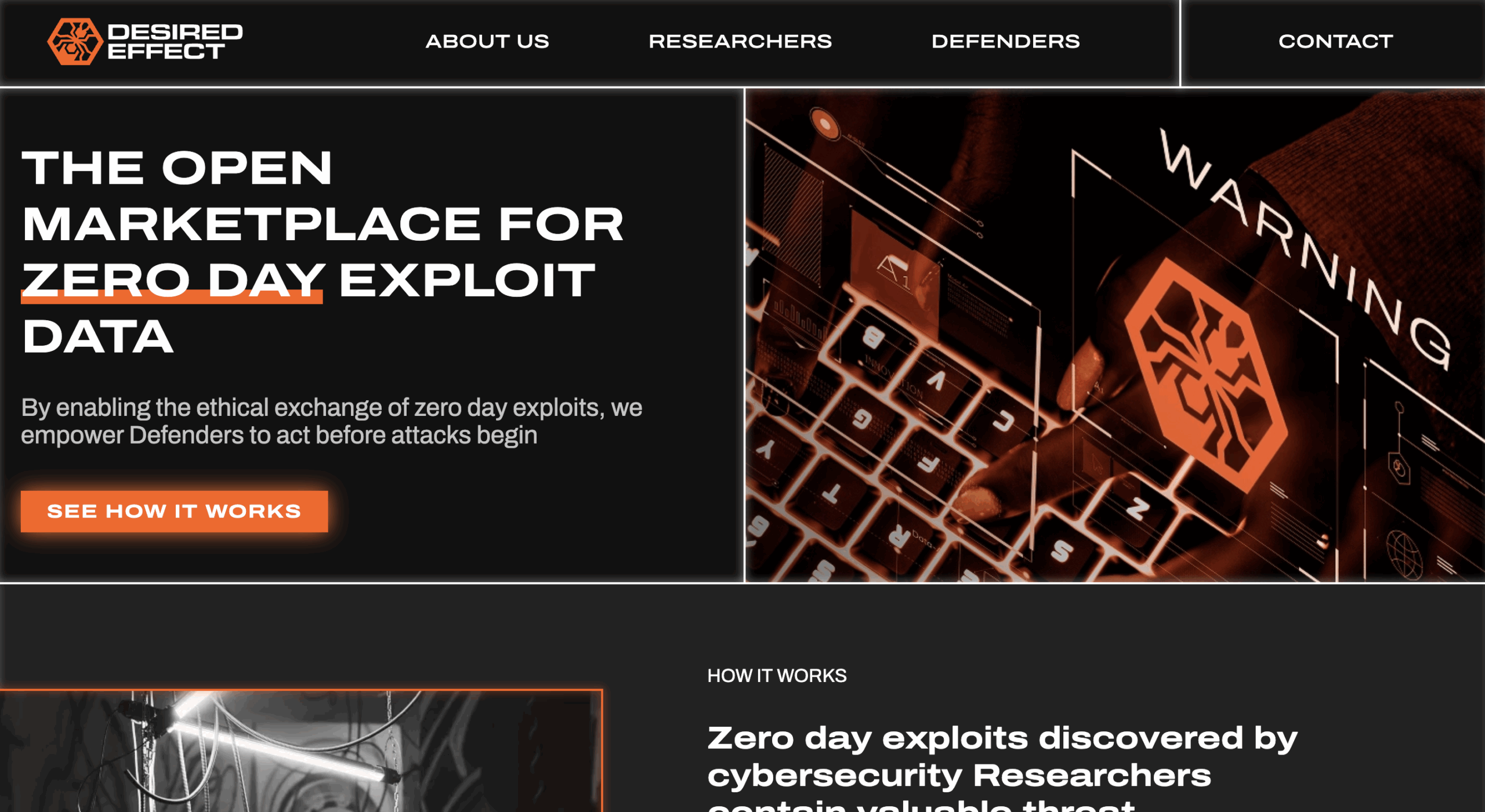Zero-day vulnerabilities have always been a race we seem to lose — attackers get the head start, and defenders scramble after the fact. A new platform called Desired Effect is trying to change that dynamic, and I believe it’s something we should be paying close attention to.
Desired Effect, founded by industry veteran Evan Dornbush, has launched an ethical marketplace for zero-day vulnerabilities. The goal is simple but powerful: give defenders rapid access to zero-day information and reward researchers directly, without waiting for the slow wheels of traditional responsible disclosure.
Most of us know the usual cycle: a researcher finds a flaw, reports it to a vendor, and waits — often months — while attackers may already be exploiting it. Desired Effect flips that:
- Researchers are in control and can sell their discoveries directly to vetted buyers.
- Defenders gain early access to vulnerabilities before public disclosure or widespread exploitation.
- No vendor-induced delays, meaning less time for attackers to act first.
Dornbush is clear: it’s not about bypassing responsible disclosure for its own sake — it’s about giving researchers a fairer, faster, and more controlled way to share their findings ethically.
The marketplace works like a transparent, legitimate trading floor for vulnerabilities:
- Researchers (sellers) list zero-day vulnerabilities.
- Organizations (buyers) purchase access to this intelligence to shore up their defenses.
- Buyers don’t purchase exclusive rights but licenses to the vulnerability information — similar to software licensing.
- Desired Effect handles vendor notifications and patch coordination if buyers prefer not to deal with that process.
Today, the platform is invite-only for researchers, but it’s already operating with 60 zero-days available. Early partners include a regional bank, a Big Four accounting firm, an energy utility, and a cryptocurrency exchange.
One of the smartest ideas I see here is how Desired Effect enables collective bidding. Instead of one hospital trying to outbid threat actors for a critical device vulnerability, multiple hospitals can pool resources to offer a fair market price. It’s a real-world way to bring security within reach for organizations that normally wouldn’t be able to compete against organized cybercrime budgets.
There’s an important reality to acknowledge: attackers may still eventually get the information. But Desired Effect ensures that defenders get it first, and faster than before.
This early warning advantage means:
- Quicker internal patches and mitigation
- Better protection before vulnerabilities are weaponized at scale
- More time to update security products like firewalls, IDS, and endpoint protection
Instead of reacting after a breach, we get the chance to proactively defend.
I see Desired Effect offering something we’ve needed for a long time: transparent, efficient access to critical zero-day information. It’s a disruption, yes — but one that moves the advantage back toward defenders.
If you’re serious about strengthening your organization’s security posture before the next supply chain or infrastructure-targeted attack, this kind of marketplace intelligence could quickly become a critical part of your toolkit.

Leave a Reply